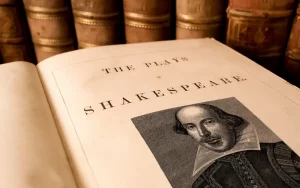The difference between private home tutors and school teachers can be confusing for parents. While both play an important role in your child’s education, there are significant differences between them that you should understand.
What’s The Difference Between A Teacher And A Tutor?
From teaching styles to learning outcomes, let’s take a look at 8 key differences between teachers and tutors that will help you make informed decisions about your child’s educational needs.
1. Different Teaching Styles
While teachers work with large classrooms and must use techniques that convey information to large groups of students effectively, tutors are typically one-on-one educators. Tutoring sessions allow the use of different materials and strategies such as interactive games, technology or creative projects to help students learn concepts in engaging ways that may be outside the scope of their classroom lessons.
2. Different Levels Of Support
A school teacher’s role is to provide a general foundation of education and support to their entire class, but private tutors can offer more comprehensive and personalised support to their students. Due to the one-on-one nature of sessions, tutors are in a better position to identify and address each student’s unique strengths and weaknesses, and are able to assist with areas where the student is struggling to ensure they have a full and proper understanding of the material.
3. Different Learning Environments
The difference in learning environment between a school classroom and a tutoring session can be significant. Tutoring sessions are often conducted in a comfortable and familiar setting, like the student’s home, which can create a more relaxed atmosphere that encourages learning and engagement. In contrast, classrooms are often more formal environments, which can lead to a very different kind of learning experience.
4. Different Rates Of Progress
With the tailored instruction provided by a tutor, students may be able to progress faster than those in a classroom setting. This may be particularly beneficial for students who have fallen behind due to illness or other disruptions, or are approaching exams.
5. Different Levels Of Flexibility
Whilst teachers must stick rigidly to school timetables, private home tutors are typically more flexible. This means that students can fit their tutoring sessions into their schedule whenever it is convenient. This could mean early mornings, evenings, weekends or during school holidays. Online tutoring has even made it possible to continue sessions whilst travelling or away on holiday.
6. Different Levels Of Attention
Classrooms can be distracting and even intimidating for many, especially if the student is quieter and more reserved. Attention is divided among the entire group and it can be difficult for any one student to get the individual attention that they need in order to progress.
Tutoring sessions, on the other hand, focus solely on that one student to ensure they understand and retain what is being taught. A tutor can adjust their approach and teaching methods for each individual student to find a style of learning that works best for them. This means students get tailored guidance, allowing them to make more significant progress.
7. Different Levels Of Focus On Subject Matter
A tutor can focus on specifics that the student requires a better understanding of, spending as much time as the child needs to master that topic or skill. School teachers move at a set pace determined by the curriculum and may not have the time to focus on any one student’s needs.
8. Different Results
The close attention and personalised instruction provided by a tutor can help your child progress in their studies much faster and understand the subject matter much more comprehensively than they would with a teacher in the classroom setting. Parents who choose private tuition for their children often see a marked improvement in grades and exam competence. This improvement in results can create more confidence in themselves and more passion for a subject, leading the student to pursue it in higher education.
Both Play An Important Role
Both school teachers and private home tutors play an important role in a student’s education. By choosing to have private tuition in addition to their school education, you can give your child the best chance at success. Each offers unique benefits which can help support the development of your child’s academic skills and allow them to reach their potential. Understanding the difference between these two modes of teaching, and how they can work together, is essential when considering educational options for your family.
If you would like to arrange tutoring sessions for your child, either in-person or online, contact London International Tutors to discuss your needs.




